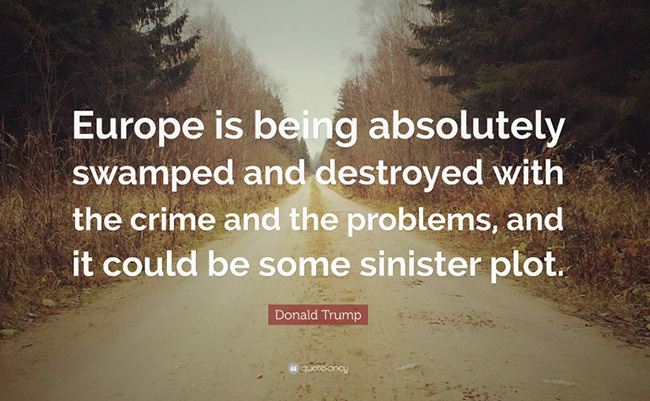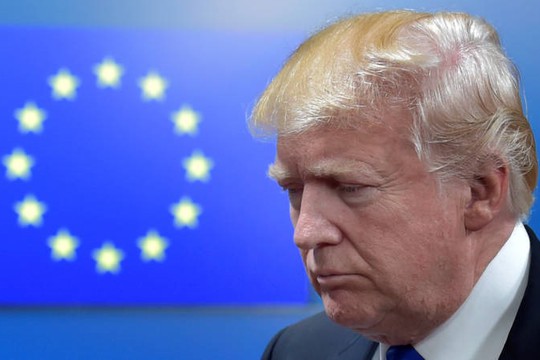Donald Trump is targeting the European Union for a potential slew of punitive trade measures designed to address long-standing grievances should he retake office, according to people familiar with his team’s nascent economic-platform discussions, writes Bloomberg.
A likely starting point in a second Trump administration would be the EU’s inclusion in a broad minimum 10% tariff, which would also be applied to China, his allies said. He might also assemble counter-measures against European digital services taxes that implicitly go after US technology champions, using Section 301 of the US trade law, the allies added.
Trump supporters cited a variety of motivations for the plans. Among them: frustration that the EU has been reluctant to take a more aggressive approach with regard to China, in terms of its own duties on Beijing and restrictions on strategic investments by Chinese companies.
The potential measures against Europe also would serve as a major component of a broader initiative to overhaul US trade in goods. The nation has had long-standing, large deficits with the EU, with 2023 data on track to mark a third straight year of an imbalance exceeding $200 billion — a pattern Trump advisers argue is an illustration of unfair trade practices.
The 10% baseline tariff isn’t entirely conceived of as a tit-for-tat measure, but also a policy to bolster the long-term global manufacturing position of the US, according to a Trump campaign official.
Overseas officials have been bracing for Trump 2.0, and frantically trying to uncover his specific plans, according to several Washington-based lobbyists.
Steven Cheung, a spokesman for the Trump campaign, said the former president “has made clear that he intends to use every tool at his disposal to defend American workers. Whether they are autoworkers, steelworkers, technology workers, or farmers, he will not stand for other countries stealing our jobs or targeting our industries for destruction.”
Washington lawmakers — primarily Republicans — and the American business community, with its swath of lobbyists, served as a last line of defense preventing that outcome.
The Trump team also intends to work to shield American companies from what they see as overreach on the part of Europeans on regulation and digital taxes.
While tech giants like Google owner Alphabet Inc., Meta Platforms Inc., Microsoft Corp., Amazon.com Inc., Apple Inc. and Netflix Inc. may have battalions of employees hostile to Trump and his fellow Republicans, Trump considers the companies born-and-bred in the US, and consequently would like to protect them, said former Trump aides.
That could be done by assembling counter-measures to European digital services taxes — which largely target the big US firms — by using Section 301 of the US trade law, Trump allies said.
“The European Union does what it can to cripple American companies. He would be pretty inclined to stand up for us,” said Trump ally and former House Speaker Newt Gingrich.

read more in our Telegram-channel https://t.me/The_International_Affairs

 11:51 08.02.2024 •
11:51 08.02.2024 •























